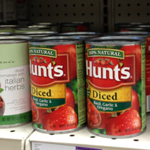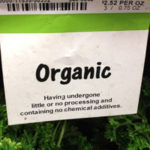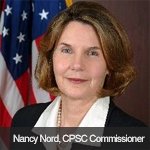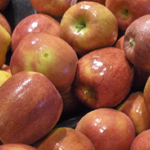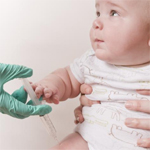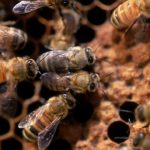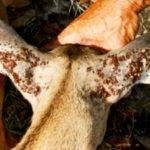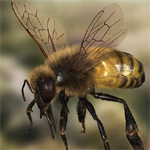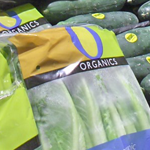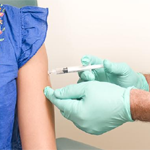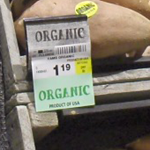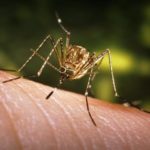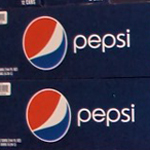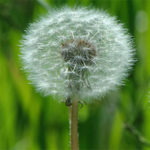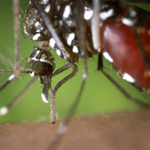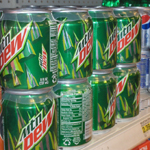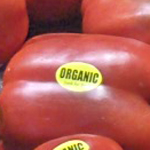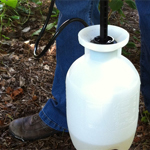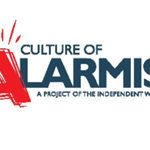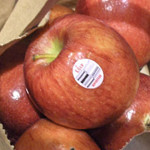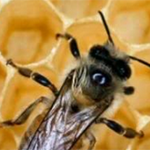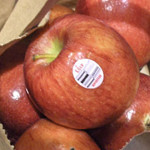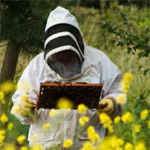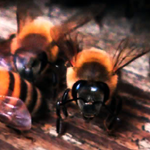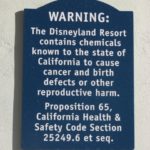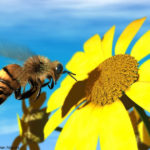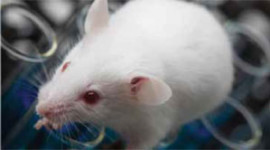"Four Foods You Should Probably Eat," by American Council on Science and Health. CNN’s Dr. Sanjay Gupta interviewed David Jack, an editor from Men’s Health about five foods one should supposedly never eat. And the ridiculous claims made by Jack were soaked right up by Gupta. James Cooper sums up the poor science behind each claim made by “nutrition expert” Jack in an on-point editorial in the Examiner entitled “Sanjay Gupta bats 1 in 5 on foods you should never eat.” The five foods were … [Read more...]
Chemophobia and Food Safety
"Food Fears Continue to Plague Americans, Whipped by Chemophobia," by American Council on Science and Health. In a recent issue of the journal Food Security, Dr. Gordon Gribble, Professor of Chemistry at Dartmouth College (and a long-time ACSH advisor) writes about Food Chemistry and Chemophobia. The latter is a term meaning an irrational fear of chemicals in the environment: that no matter how tiny an exposure one faces, it is to be avoided at all costs. Dr. Gribble points out how unnecessary … [Read more...]
Junk Science on Chemical Effects on Children
"How Abysmal Scientific Research Is Used To Scare America's Parents," by Geoffrey Kabat. We have become accustomed to a steady barrage of reports of hazards lurking in our environment that MAY pose a threat our health and that of our children. These include, among others, low-level radiation exposure from nuclear power plants and nuclear waste; possible water contamination from hydraulic fracturing; and exposure to a wide range of chemicals, including pesticides and industrial pollutants, in … [Read more...]
“Certified Naturally Grown” without Red Tape
"'Certified Naturally Grown' - No Synthetic Pesticides, No Big Organic Fees,"By >Hank Campbell. What happens if you adhere to every process restriction that a corporation that sells its food using the 'organic' label adheres to, but you don't pay the fees to get a government 'certification' and still try to claim you are 'organic' at a local Farmer's Market? About $20,000 in government fines, it seems. Read the full article at Science 2.0. … [Read more...]
CPSC Commissioner Nord: Problems Remain with Consumer Product Safety Improvement Act
"CPSIA’s Fifth Anniversary," by Nancy Nord. On August 14, 2008, Congress passed and the President signed the Consumer Product Safety Improvement Act (CPSIA). It contained new regulatory authorities and enforcement tools (many of which I suggested to Congress when I served as acting chairman) to make it easier for CPSC to find and recall unsafe products made around the world. Five years ago today, the agency began to follow through on my pledge to implement the law fully and fairly. … [Read more...]
Pesticide Residue Calculator
"Calculate Your Risk from Pesticide Residues," by Angela Logomasini. Ever worry how much pesticide residue you consume daily? Environmental activists, particularly at the Environmental Working Group, suggest that you can reduce your risks—and fears--by eating fewer of the fruits and vegetables with the highest residues, such as apples, and more of others, such as onions. IWF’s Julie Gunlock and I along with many others have pointed out why EWG’s claims are simply wrong. Read the full story on … [Read more...]
Court Ruling on Autism and Vaccines Not About Science
"Court Rulings Don't Confirm Autism-Vaccine Link," by Emily Willingham. There’s a post making the rounds courtesy of something called “Whiteout Press” with the headline “Courts confirm vaccines cause autism.” It’s spreading across sites, through chains of elementary school parent communities, and onto radars of other communities that overlap. In other words, it’s viral. If only there were a vaccine for it. Read the full article on Forbes.com. … [Read more...]
Anti-Alarmist Role Model
"Emily Oster: Anti-Alarmist Role Model," by Julie Gunlock. Saturday's Wall Street Journal ran an article covering the many warnings pregnant women face today. It wasn’t just the content of the piece that caught and kept my attention; it was what the writer represented—a woman in charge of her own health and the health of her baby. This woman wasn’t going to be pushed around or unnecessarily frightened by the alarmists. Read the full story on IWF's Inkwell Blog. … [Read more...]
Dangerous Reversal on Flame Retardants
"The Chemphobes Deadly Agenda: Flame Retardants," by Julie Gunlock. In January 2000, a fire broke out in a dormitory at Seton Hall University in New Jersey ... In 2001, the New York Times covered the aftermath of the blaze and focused on demands that the school install sprinklers and adopt “mandatory fire retardancy standards” for dorm furniture. .... Now, over a decade past the Seton Hall fire, memories have faded and people are literally inventing things to fear. Enter the chemphobes who have … [Read more...]
Honeybees & Pesticides
"Perspectives on Honeybees & Pesticides," by Angela Logomasini. If you believe the headlines, honeybees may soon be endangered, pesticides are to blame, and regulations offer an easy solution. Yet headlines belie the truth of the matter: Some honeybees have left their hives to never return, but we really don’t know why. Referred to as “colony collapse disorder,” the disappearance of honeybee colonies raises concerns that it will be increasingly difficult to produce food without enough of … [Read more...]
No ‘Bee-pocalypse,
"Everyone Calm Down, There is No 'Bee-pocalypse,'" Shawn Regan. Honey BeeThe media is abuzz once again with stories about dying bees. According to a new report from the USDA, scientists have been unable to pinpoint the cause of colony collapse disorder (CCD), the mysterious affliction causing honey bees to disappear from their hives. Possible factors include parasites, viruses, and a form of pesticide known as neonicotinoids. Whatever the cause, the results of a recent beekeeper survey suggest … [Read more...]
Judge Cans Prop. 65 Label
"California Judge Rules on the Side of Sound Science – No Warning Labels Required," by American Council on Science and Health. In the culmination of a five-week trial, California’s Judge Brick ruled that health warnings would not be necessary on various fruit and vegetable products, 100% juices and baby foods, from companies including Del Monte, Dole, Gerber, Hain-Çelestial, J.M. Smucker, Seneca Foods and Welch’s. Read the full story on the American Council on Science and Health's website. … [Read more...]
Health Toll of Anti-Pesticide Policies
"Humans Pay the Price for Anti-Pesticide Policies," by Angela Logomasini. I recently went home to Long Island to find that one of my siblings was undergoing treatment for a dangerous tick-transmitted disease. This isn’t the first time my family has suffered from a tick-related illness, and I blame New York State officials in part for outlawing useful tools to fight the region’s growing tick and mosquito populations. Read the full article at the Daily Caller. … [Read more...]
The Data on BPA and Breast Cancer
"BPA And Breast Cancer: When Academics Spin Statistics," by Trevor Butterworth. A new study, funded by the National Institute of Environmental Health Sciences (NIEHS), and published in a journal the institute subsidizes – Environmental Health Perspectives (EHP) – raises an alarm. This is not, in itself, unusual; EHP is a repository of alarming claims about the environment; but what makes this study different – and alarming in its own terms – is not the claim that “human relevant” exposure to … [Read more...]
BPA and Infertility
"An Alarming Call for BPA Research Funding," by Angela Logomasini. The headlines are out. The chemical Bisphenol A (BPA) is now “linked to infertility.” How do we know that? Researchers exposed immature eggs left over from fertility treatments to high levels of BPA in the lab. The result, notes The Boston Globe, was: “Only 35 percent of eggs exposed to the lowest levels of BPA had a normal number and configuration of chromosomes after they fully matured compared with 71 percent of those in a … [Read more...]
Do We Need TSCA Reform Reform?
"Is TSCA Reform Reform Necessary?, by American Council on Science and Health. No, that’s not a typo. With “reform” of the Toxic Substances Control Act (TSCA) almost a reality, Sen. Barbara Boxer (D-CA), chair of the Environment and Public Works Committee, has decided that the revised law was itself in need of revision, threatening its very existence. Here’s the backstory: for what seems like decades, environmental activists have been calling for “reform” of the 1976 chemical safety bill, … [Read more...]
There’s No Such Thing as a Natural Remedy
"Don’t be Fooled by ‘Natural’ Buzzwords", by Christopher Labos. I learned a new word recently. A colleague introduced me to the term “chemophobia” — the fear of chemicals. He showed me an article in the New York Times Magazine about people’s preference for taking a “natural” remedy over standard medication. This feeling is understandable, and I’ve come across it many times, but I was surprised to see that it had actually been given a name and that people were writing in defense of it. What I … [Read more...]
Accidental Bee Kill Not Excuse for Bans
"A Stinging Rebuke of Anti-Agriculture Environmental Activists," by Jeff Stier. An estimated one hundred people braved scorching outdoor temperatures to attend a memorial service earlier this month. The honorees, however, were not heroes, community figures, or even human. They were bees apparently killed by accident in Wilsonville, Ore. Deemed a "bee kill," the insects were found dead in a Target parking lot after a pesticide was sprayed on trees infested with aphids. Media attention to the … [Read more...]
Certified Organic, Yet Untested for Safety
"Organic Crops Are Tested For Pathogens, Right? Nope," by Mischa Popoff. View of rows of green and red lettuces.The United States Department of Agriculture (USDA) prohibits synthetic nitrogen fertilizer in organic production and encourages natural compost. But it does not test for un-composted feces, relying instead on record-keeping and record-checking. As I have said before, this can create serious problems. At least 140 people across eight states have now fallen ill after consuming … [Read more...]
Greens Exploit Accident for Anti-Pesticide Agenda
"Anti-Pesticide Group Deplorably Exploits Tragedy in India to Promote Their Agenda," by American Council on Science and Health. Last week, 25 children in India died — and many others sickened — as a result of organophosphate pesticide poisoning which contaminated the children’s school lunches. It is suspected that the rice or cooking oil used to prepare the food contained lethal levels of the neurotoxin. This is even more of a tragedy given that this school lunch program was developed by the … [Read more...]
Dangerous Results from Alarmism Regarding Vacines
"The Autism-Measles Panic, 15 Years Later," Emily Willingham. Several news outlets today are reviewing the measles outbreak in Wales, citing public health experts who lay the blame for the burst in cases squarely at the feet of Andrew Wakefield’s bogus MMR vaccine scare in 1998 and the subsequent media coverage. The Wall Street Journal has a particularly in-depth story [hits paywall if you click the link here, but clicking from Google News seems to give full access], “Fifteen Years After Autism … [Read more...]
No Link between Autism and Mercury in Seafood
"Mercury And Autism Not Linked, Again," by Emily Willingham. A “sentinel” population in the vastness of the Indian Ocean has long attracted scientific interest because of how much dietary methylmercury its members consume. The thing is, though, that as much as scientists have looked, they have yet to find any problems related to this intake. In the latest study with this ‘sentinel population’, researchers again have found no link, this time between autistic behaviors and maternal mercury … [Read more...]
Risks of “Green” Goods and Food
"Making Products and Food Less Safe," by Julie Gunlock. The environmental group behind the Mind the Store Campaign is dead set on making products less safe. That makes me mad. As a mother, I simply don’t understand why this group is so determined to take perfectly safe and reasonably priced products and make them less so—especially when many of the products the campaign targets are for kids. Thankfully, the campaign’s first phase (to pressure retailers to take products off store shelves) failed … [Read more...]
Is Organic Food Really More Ethical?
"Organic Food – What is an ‘Organic’ Label Really Worth?" by Jon Entine." Consumers are willing to pay a premium for organic products, but the realities can mean you get little more than a psychological boost for your buck. Supermarkets in North America and Europe are overflowing with organic-labelled fruit, vegetables, eggs and meats. More than 80 countries have organic standards and products carry one or more of 200 seals, logos and certification claims. But are consumers able to make informed … [Read more...]
Unreasonable Precaution
"The Precautionary Principle is a Blunt Instrument, a 90s Throwback Out of Place in an Era of 'Smart Solutions' and Big Data," by Tracey Brown. A world of over seven billion people faces some pretty complex questions about the trade-offs involved in producing food, using resources, reducing disease and achieving the societies and environments in which we want to live. There's a collision between short-term and long-term outcomes, narrow interests and broader ones, and between problems and … [Read more...]
FDA Ban on BPA Based on Junk Science
"The BuzzFeed-ification of Science Reporting," by Lisa De Pasquale. For years I've been writing about how science reporting has devolved into hysteria and misinformation disguised as public service. TV reports lead with scare tactics like "Stay tuned for the killer in your kitchen cabinet!" with little regard to actual scientific evidence. It's gotten so ridiculous that even a TV provider makes fun of them in their commercial. Soon we'll be seeing reports on Sharknado preparation. Regarding the … [Read more...]
Precautionary Politics Attack Plastics, Medical Devices
"European Descent into Dark Age Ignorance Continues Apace," by American Council on Science and Health. When the EU adopted the anti-science “precautionary principle” as its guiding paradigm a decade or more ago, we don’t think anyone (except perhaps its anti-progress advocates) had any idea how low the regulatory process would stoop in service of its ideology. This misguided concept asserts that any process or substance which has not been “proven safe” should be restricted or banned out of an … [Read more...]
Call for Mosquito Spraying on Long Island
"ACSH Sets Ocean Beach Straight: Mosquito Spraying is the Right Thing to Do," by American Council on Science and Health. When ACSH’s Dr. Josh Bloom, a long time resident of Ocean Beach on Fire Island, learned that his close friend Jim Capuano— a six year survivor of stage-4 colon cancer— nearly died last year from West Nile encephalitis, he knew he had to at least try to do something. The problem was a counterproductive policy that was instituted by the village decades ago—opting out of the … [Read more...]
BPA Ban Not Related to Safety Concerns
"FDA Bans BPA in Already-BPA-Free Uses," by Gayle S. Putrich. The Food and Drug Administration will no longer permit the use of bisphenol A in packaging for baby formula. The controversial plastic feedstock was banned from baby bottles and cups last year. In issuing the new ban, however, FDA said it still considers BPA to be safe for packaging, but took its action because manufacturers have already abandoned its use in baby formula packaging. The plastics and chemical industry also said the … [Read more...]
Scientists Take Stand Against Junk Science
"Scientists Warn of Dangers of 'Precautionary Science,'" by Angela Logomasini. Eighteen scientists recently weighed in on the unscientific and dangerous nature of the so-called “precautionary principle” in the July issue of the journal Food and Chemical Toxicology. The article follows on the heels of a substantially similar letter to the EU president’s Chief Scientific Adviser that dozens of scientists signed in protest of the European Union’s draft regulation on endocrine active chemicals. … [Read more...]
Greens Attack Pepsi
"4-MEI Under Attack Again," by American Council on Science and Health. Those chemical alarmist groups are at it again, and as is so often the case, they are being aided and abetted by their pals in the regulatory state. Just before the long July 4th weekend, the anti-chemical activist group Center for Environmental Health released a report asserting that Pepsi is continuing to sell soda made with 4-MEI (4-methylimidazole) despite it being added to the list of carcinogens regulated under … [Read more...]
NYS Bureaucrats Contribute to Tick Problem
"New York State Bureaucrats Block Lyme Disease Control," by Angela Logomasini. As Americans gather outdoors to celebrate the 4th of July, ticks are also out — and in record numbers — particularly in certain places like the East End of Long Island. According to the Sag Harbor Express, New York State Department of Health officials recommend that individuals protect themselves by staying inside (the Health Department website does offer some more useful advice). Seriously, that’s just dumb, … [Read more...]
Pesticide Ban Problems
"Problems With Pesticide Ban," by K. The province government needs to address some concerns about its proposed cosmetic pesticide ban, says the president of Keystone Agricultural Producers. Conservation Minister Gord Mackintosh announced last week that legislation will be introduced in fall that will ban synthetic weed control products beginning in December 2014, with a one-year grace period. The prohibition will apply to lawns, driveways, sidewalks and patios, as well as school grounds, … [Read more...]
Smart Response to Buzzfeed Article on “Dangerous” Food
"8 Foods The USA Bans But Other Nations Don't," by Emily Willingham. Perhaps you’ve seen the viral Buzzfeed article about the eight foods other countries banned that the US does not. Perhaps it occurred to you that just because something is used to slow down a fire doesn’t mean it or its components are always a bad thing (water, anyone?). But others have amply taken on the deep and depressing science literacy deficits of that particular article, so I thought I’d take a different tack today and … [Read more...]
Autism and Air Pollution Connected?
"Autism And Air Pollution Caveats, Again," by Emily Willingham. We’ve been here before, coupling autism and air pollution. Now, there’s a new study out, making the same claims of correlation between air pollution exposure during pregnancy and the risk of having a child with autism. When the previous studies appeared a mere few months ago, I wrote about five caveats that should give pause to taking the findings too seriously. These five things were ... Read the full article at Forbes.com. … [Read more...]
Activists Capitalize on “Mommy Guilt”
"Mommy Guilt: It’s an Industry," by Julie Gunlock. [A]ccording to a national online survey just released by the Independent Women’s Forum, “mommy guilt” is pervasive among women. Yet, women should be aware that their guilt is proving to be a goldmine for many environmental and public-health organizations that capitalize on mommy guilt in order to further certain regulatory goals.This mommy-guilt industry is made up of organizations that present themselves as moderate voices working to ensure … [Read more...]
Attack on Pesticides Could Increase West Nile Virus Risk
"Alarmism May Contribute to West Nile Virus Illnesses," by Angela Logomasini.. Alarmism and junk science surrounding pesticides may translate into more sicknesses and deaths related to the mosquito-carried West Nile Virus. Activists and others are attacking products that local public officials need to reduce mosquito populations and public health risks. In the past, activists have attacked insect repellants containing the chemical DEET. But one of the best things you can do to reduce risks for … [Read more...]
Anti-Fracking Nonsense
"Fracking: Evidence-Smevidence," by Vicki E. Alger. Recall back in 2011 when the EPA released a non-peer reviewed report that linked hydraulic fracturing, or fracking, to contaminated wells in Pavillion, Wyo.? At the time then-EPA administrator Lisa Jackson acknowledged there has never been a proven case of fracking affecting water. Read the full article at IWF's Inkwell Blog. … [Read more...]
Risks Overblown on Chemicals in Food
"Shout out to Derek Lowe’s ‘A little Chemical Education,’" by American Council on Science and Health. In a world dominated by the click of a button, where bad news seemingly travels at the speed of light, while science-based good news barely makes it into the media at all, it should come as no surprise that an article titled “Eight Foods That We Eat In The U.S. That Are Banned In Other Countries” would get a half million hits on BuzzFeed. Read the full article in ACSH Dispatch. … [Read more...]
Food Chemophobia
"Eight Toxic Foods: A Little Chemical Education," by Derek Lowe. Many people who read this blog are chemists. Those who aren't often come from other branch of the sciences, and if they don't, it's safe to say that they're at least interested in science (or they probably don't hang around very long!) It's difficult, if you live and work in this sort of environment, to keep in mind what people are willing to believe about chemistry. But that's what we have the internet for. Many science-oriented … [Read more...]
Health Canada Declares BPA Safe–Again
"Canada: More Junk Science? The Anti-BPA Crusade Is Back," by Ronald L. Doering. The 25-year controversy involving BPA in food packaging won't go away. It continues to hang ominously like a black cloud over the food industry....Over the years Health Canada (HC) conducted periodic reviews of BPA to determine whether dietary exposure to it could pose a health risk to consumers. ... HC's Food Directorate has concluded again unequivocally that the current dietary exposure to B... HC has made a real … [Read more...]
Toxic Claims About Chemicals in Food
"Daily Mail's Shocking List of Lies About Chemicals in Food," Julie Gunlock. Alrighty…everyone take a deep breath. And, for heaven’s sake, stop cleaning out your refrigerator and pantry of “toxic” food. If you’re one of the many panicked people who read the recent Daily Mail article revealing a “shocking list” of foods that contain “dangerous chemicals,” calm yourself: this is alarmism at its finest. In fact, the article actually advises readers to “sit down before reading” that “Many of the … [Read more...]
Pesticide Exposure and Low Cancer Rates
"For Longer Life and Less Cancer: Pesticides!?" by American Council on Science and Health. A large, U.K. government-supported study, The Pesticide Users’ Health Study, 1987-2005 (PUHS) was released this week. This huge evaluation of various health outcomes focused on mortality and cancer incidence data collected from 59,000 male and 4,000 female certified pesticide commercial users over almost two decades. The results, which are sure to come as a welcome surprise to those who are truly … [Read more...]
Green Groups Should Mind Their Own Business
"Radical Environmentalists Should Mind Their Own Business," by Julie Gunlock. Typically environmental organizations target consumers with overwrought warnings of how some everyday product or activity is destroying the world and threatening their health. Yet now, activists are turning their targets toward major retailers. These companies should reject these scare tactics, which will harm not only their businesses, but consumers too. The “Mind the Store” campaign, the latest initiative of a … [Read more...]
Organic Food Safety In Question
"The Organic Hepatitis Outbreak: We Need Organic Field Testing," by Mischa Popoff. How safe are organic foods, especially when compared to conventionally grown varieties? Not as safe as many assume. A recall has just been announced for certified-organic berries sold at Costco. According to the Centers for Disease Control, at least 79 people in eight states have contracted hepatitis A, a debilitating disease that can last for weeks or months, and even be deadly, after eating Townsend Farms … [Read more...]
“Killer” Raincoats
"Be Very Scared...of Your Raincoat," by Julie Gunlock. The folks over at the innocently named "Safer Chemicals, Healthy Families" organization are freaking out again...this time, over your kid's raincoat. It's important to remember that this is the same group behind the nonsensical "mind the store" campaign which seeks to remove thousands of popular products from store shelves (please sign our petition against the campaign here). Read the full article on IWF's Inkwell Blog. … [Read more...]
Pesticide Hype Debunked
"Debunking Agriculture Alarmism: Pesticides," by Julie Gunlock. My Facebook newsfeed lights up the same time each year with suggestions from many of my well-meaning (yet somewhat gullible) Facebook friends that they plan to protect their kids from scary pesticides by avoiding the “dirty dozen”—a list compiled by the junk science peddlers over at the Environmental Working Group (I refuse to link to their site. If you want to find them, just Google “crazy lying liars that make moms cry”). Read … [Read more...]
Triclosan and Pregnancy
"Should Moms be Afraid to Wash their Hands?" by Angela Logomasini. I came across a comment on Babycenter.com where one expectant mom asks: “How should I wash my hands?” Her question is prompted by one of the latest green scares, this one about anti-bacterial soap, which uses the chemical triclosan. My advice: wash your hands and don’t worry about it! Washing your hands with soaps that contain triclosan or other chemicals will do more good than any alleged harm activists can dream up! Read … [Read more...]
Pesticide Workers’ Low Cancer Risks
"Cancer Rates Low Among Pesticide Workers," by Angela Logomasini. If chemical exposures are a significant cause of cancer, as some environmentalists say, you’d expect that individuals who apply pesticides for a living would have higher cancer rates. But a recent study conducted by the U.K.-based Health and Safety Laboratory indicates, that’s not the case—at least not for pesticide workers. The study looked at mortality among 59,085 male and 3,875 female commercial pesticide applicators, and … [Read more...]
Pesticides & Human Health
"Pesticides Kill Pests, And Protect Lives," by Alan Caruba. A bit of personal history; in the 1980s I was engaged by the U.S. producer of a pesticide called Ficam to develop case histories about its use. Ficam is applied with water and it killed off a wide range of common insect pests. There is no odor and there is no hazard to humans when correctly applied, but at some point the Environmental Protection Agency told the producer it would have to go through the entire process of re-registering … [Read more...]
Pesticides and Parkinson’s
"Exposure to “Pesticides” a Risk Factor for Parkinson’s? Not so Fast!," by American Council on Science and Health. A new study published in the journal Neurology tries to suggest that there may be an association between exposure to pesticides and solvents and Parkinson’s disease. Even the study authors are blatantly aware of the shortcomings of their study when they say, the evidence is “limited, or at least inconclusive,” because of “lack of definitive agreement between cohort and case-control … [Read more...]
Pregnancy Study Unhelpful
"RCOG Report on Chemical Exposures During Rregnancy" by Sense about Science. “Pregnancy is a time when people spend a lot of time and money trying to work out which advice to follow, and which products to buy or avoid. The simple question parents want answered during pregnancy is: ‘Should we be worried?’ What we need is help in navigating these debates about chemicals and pregnancy. Disappointingly, the RCOG report has ducked this. Read the full commentary on Sense about Science. … [Read more...]
Alarmist Study on Pregnancy and Chemicals
"Pregnancy Safety Advice Prompts Criticism," by Michelle Roberts. The Royal College of Obstetricians and Gynaecologists has been criticised for saying pregnant women may want to "play it safe" and avoid chemicals found in many common household products. It says there is not enough information about the chemical risks to foetuses from cosmetics and food packaging. Items which it suggests should be avoided include tinned food, ready meals, shower gel and even new cars. Critics say the advice is … [Read more...]
Plastic Bag Ban Unpopular
"Kirkland Poll on Plastic Bags: Strong Opposition to a Ban," by Todd Myers. After other local cities have banned plastic grocery bags, the City of Kirkland commissioned a public opinion survey to see what residents would think about bringing the policy to the community. Not much, apparently. Two results stand out. First, strong majorities opposed charging for plastic bags or banning them altogether. By more than a two-to-one margin, Kirkland residents oppose a plastic bag ban. Similar margins … [Read more...]
Tell Alarmists to Mind Their Own Business!
"Petition to Save Consumer Choice," by the Independent Women's Forum. Radical environmental activist groups are determined to take popular items off store shelves and limit consumer choice. The "Mind the Store" campaign is the latest initiative to pressure the nation’s largest retailers to remove products from store shelves that contain, in any amount, any of the 100 chemicals the campaign considers "hazardous". The environmental organization behind "Mind the Store" claims these chemicals … [Read more...]
IWF to Retailers: Mind Consumer Rights
"Retailers Should Keep Consumers — Not Greens — In Mind," by Angela Logomasini. As part of its Culture of Alarmism project, the Independent Women’s Forum (IWF) has recently launched a coalition letter – which includes CEI — to retailers to combat the greens so-called “Mind the Store“ campaign. We (IWF, CEI, and 21 other groups) advise retailers to ignore radical greens’ advice to remove certain products from store shelves, and instead honor consumer freedom. Read the full article at … [Read more...]
California Gov. Tackles Prop65
"Cheers to Gov. Brown for Tackling Proposition 65," by Angela Logomasini. California Governor Edmund G. Brown Jr. has proposed reforming the state’s Proposition 65 law, which requires businesses to disclose the use of chemicals that the state lists as “toxic.” In addition to going after this trial-lawyer-get-rich-quick scheme, the governor also wants to modify the standards under Proposition 65 to make them more scientific.Read the full article on IWF's Inkwell Blog. … [Read more...]
Honeybee Health
"For a Responsible Approach to Bee Health, Ignore the Activists," by Jeff Stier. Bees pollinate a host of important crops, from fruits and nuts such as oranges, blueberries, apples and almonds, to row crops such cotton, canola, and soy. But the last few decades have been tough for bee populations, which have experienced larger than normal winter die-offs. Read the full article on the Huffington Post. … [Read more...]
EWG Is Wrong Again
How Wrong Is The Latest "Dirty Dozen" List? by Steve Savage. The Environmental Working Group (EWG) says that it "helps protect your family from pesticides." The purpose of this Applied Mythology post is to "help protect your family from dangerously misleading information from the EWG." Each year since 1991, the USDA has been publishing the results from a large-scale pesticide residue monitoring program called the PDP. Each year, a different set of crops is chosen and samples are purchased from … [Read more...]
Anti-Pesticide Activists and Honeybees
"Chemophobic Anti-Pesticide Groups Are At It Again," By Paul Driessen. Modern environmentalism rose to ascendancy on opposition to pesticides, specifically DDT. “If the environmentalists win on DDT,” Environmental Defense Fund scientist Charles Wurster told the Seattle Times in 1969, “they will achieve a level of authority they have never had before.” Using Rachel Carson’s often inaccurate book Silent Spring to drive a nasty campaign, they succeeded in getting the Environmental Protection … [Read more...]
Bees and Pesticide Regulation
"Will We ‘Bee’ Smart about Pesticide Regulation? by Henry Miller. On April 29, the European Commission failed for the second time to get the votes necessary to pass a proposed two-year ban on several innovative agricultural pesticides known as neonicotinoids (“neonics”). But immediately after reporting that a “qualified majority” of member states had not been reached, the Commission’s health and consumer affairs commissioner, Tonio Borg, announced that he would institute the ban … [Read more...]
Junk Science, EWG, and FOX News
"Surprising Junk Science on FOX News," by Angela Logomasini. News stories trumping junk science are common, but I expect better from FOX News, which claims to be “fair and balanced” and hosts great shows like STOSSEL. And they’ve run some of my commentaries, which I appreciate. That’s why I am perplexed by some FOX reports on environmental issues, many of which seem to peddle junk science pushed by activists at the Environmental Working Group (EWG). Read the full article on OpenMarket.org. … [Read more...]
Bee Colony Collapse & Anti-Pesticide Activists
"Collapse Of Bee Colonies Is Latest Target For Anti-Pesticide Groups," By Paul Driessen. Beekeeping is big business, and everyone loves honey and foods made possible by pollination. But "colony collapse disorder" threatens bees and crop pollination in many areas. CCD and other bee die-offs are nothing new. What we now call colony collapse was first reported in 1869, and many outbreaks since then have sent scientists scurrying for explanations and solutions. Fungi, varroa mites and other … [Read more...]
Chemophobic Mom Blogs
"Mommy Blogs Feed Chemophobia," by Julie Gunlock. When I started writing about chemicals a few years ago, I was driven by my own interest in the subject. As a new mom, I was suddenly hearing a lot more about the seemingly innocuous things that could harm my baby. I’m not talking about obvious things—like unfriendly dogs, child predators, broken playground equipment, and asteroids hurtling toward earth. No, no. I was being told that I needed to worry about plastic sippy-cups, non-organic … [Read more...]
Triclosan, NRDC and FDA Review
"'Shocking' Truth about Government and Soap," by Angela Logomasini. Is your hand wash slowly killing you as government regulators sit idly by? Sounds silly, but that’s what environmentalists seem to think about an antibacterial agent called triclosan, which is used in soap and other consumer products. According to the NRDC: “In laboratory studies, they [antibacterial chemicals] have been shown to disrupt hormones and can encourage the growth of drug-resistant bacteria or ‘superbugs.’” The … [Read more...]
EWG Dirty Science
"Dirty Dozen List Loses its Punch," by Richard Cornett. This year’s release of the Dirty Dozen List produced by the Environmental Working Group (EWG) is beginning to shed its sizzle because of a full-court press by agricultural interests to focus on science-based information. Each year the EWG comes out with a list that ranks fruits and vegetables according to pesticide residue levels. For years the list has been a constant irritant to agriculture because it gives the impression that … [Read more...]
Green Chemistry Nightmare
"Coming To A Theater Near You: California’s “Green Chemistry” Nightmare," by Hugh Hewitt. I should be the last guy complaining. My law partner Liz McNulty and I will spend many a billable hour over the next decade or two advising companies on what to do with the avalanche of regulations about to descend on them courtesy of California’s Department of Toxic Substances. Their “green revolution” nightmare is about to begin, and the only folks who will benefit from it are employed by the … [Read more...]
Regulatory Inertia & Triclosan
"The EPA Opens a New Review of Handsoap, But Government Study Goes on for Decades," by Paul Alexander. In Washington, the Wheels of Government Grind Slowly -- When they Grind at All. One area of government habitually plagued by bureaucracy is the regulatory agencies, among them the Environmental Protection Agency and the Food and Drug Administration. Reviews of substances regulated by these agencies can take years, sometimes many years. Few reviews have lasted longer than the one afforded a … [Read more...]
BPA Replacements Not Better
"BPA Replacement Faces Same Attacks as BPA," by Kenneth Artz. As anti-chemical activists attempt to ban the safe but controversial chemical Bisphenol A from plastic products, a new study claims the most viable replacement chemical presents greater human health concerns than the exhaustively tested Bisphenol A. Read the full article in Climate and Environment News. … [Read more...]
Pesticide Scare Debunked
"Environmental Activist Scare Debunked," by Jeff Stier. In a piece for the Huffington Post, Dr. Henry I. Miller and I take on the Environmental Working Group for scaring the public about the safety of fruits and vegetables. We also take on the scare-hungry media for reporting on the junk-science as if it had any merit. Read the full story on the NCPPR blog. … [Read more...]
Are Pesticide Residues Dangerous?
"Nutritious Apples, Poisonous Claims," By Angela Logomasini Eat fewer apples, strawberries and grapes, and more corn, onions and pineapples, and you’ll protect yourself and your children from “toxic” pesticides, according to the Environmental Working Group’s 2013 Shopper’s Guide to Pesticides in Produce. This advice, however, is nothing more than dangerous hogwash. Read the full article in the Washington Times. … [Read more...]
Scare Mongering About Lipstick
"Environmental Scaremongers Strike Again," by Center for Consumer Freedom. In the past we’ve covered the so-called “Campaign for Safe Cosmetics,” (CSC) an environmentalist scare spinoff of the Environmental Working Group (perhaps better billed the “Environmental Worry Group”). EWG is so prone to overblowing fears of chemicals that 79 percent of members of the Society of Toxicology surveyed thought EWG overstated chemical risks, so it’s understandable that CSC, its corporate child, is hyping a … [Read more...]
Beekeeper Fingers Ethanol Mandate
"My Bees, Pesticides and Washington State's Biofuel Mandate," by Todd Myers. The sun is slowly arriving and the bees in my new beehives, as well as bees across the Northwest, will be happier for it. As they begin to pollinate flowers and orchards, however, they will face a number of challenges: Varroa mites, wasps, pesticides and loss of suitable bee pasture. Recently, various members of the environmental community have seized on the threat from one type of pesticide, known as neonicotinoids, … [Read more...]
Choosing Organic Food–or Not
"Choosy moms choose…" by Anastasia Bodnar. On Twitter the other day, I was told that “moms choose organic” for their kids. I’m a mom (almost) and I don’t choose organic. Personally, I dislike the implication that I am doing wrong by not buying organic and I think it causes harm to spread such an idea because it might discourage people from eating healthy foods that don’t have that label (or encourage people to eat junk food just because it’s labeled organic). Also, organic is a small percentage … [Read more...]
The Poltics of Bees and Neonicotinoid Insecticides
"The Politics of Bees Turns Science on its Head -- Europe Bans Neonics While Local Beekeepers, Scientists Say Action is Precipitous," by Jon Entine. In a move they say will protect bees, the European Commission announced on Monday that it would impose a two-year ban on neonicotinoid insecticides, although a sharp divide remains whether politics or science is driving this policy change. .... They have announced that the ban will likely become effective at the end of the year even though the … [Read more...]
Study of Roundup Herbicide: Junk Science
"Is Glyphosate Poisoning Everyone?" by Derek Lowe. I've had a few people send along this article, on the possible toxicological effects of the herbicide glyphosate, wondering what I make of it as a medicinal chemist. It's getting a lot of play in some venues, particularly the news-from-Mother-Nature outlets. After spending some time reading this paper over, and looking through the literature, I've come to a conclusion: it is, unfortunately, a load of crap. Read the full article on Corante. … [Read more...]
Phoney Science on Roundup Herbicide
"Condemning Monsanto With Bad Science Is Dumb," By Tamar Haspel. Did you see the latest indictment of Monsanto making the rounds? It's a "peer-reviewed" paper in the journal Entropy, co-authored by Anthony Samsel and Stephanie Seneff, blaming glyphosate, the compound in the herbicide Roundup, for virtually all the ills that can befall us. But here's the thing -- they made it up. Read the full article on Huffington Post. … [Read more...]
Confused Cancer Priorities
"Modish, Anti-Science Thinking Won't Advance Breast Cancer Prevention," Geoffrey Kabat. Two months ago an entity called the Inter-Agency Breast Cancer and Environmental Research Coordinating Committee, or IBCERCC, issued a 270-page report entitled “Breast Cancer and the Environment: Prioritizing Prevention.” Read the full article on Forbes.com. … [Read more...]
BPA and other Chemicals Don’t Belong on Prop 65 List
"Why BPA (And Other Chemicals) Don’t Belong On Proposition 65," by Angela Logomasini. If you want to have fun in California’s Disneyland, avoid reading the warning signs saying that products used in the park may give you cancer and reproductive problems! They’re not just a buzz kill, they are plain dumb and misinformed. But it’s state law that they be there. You can find them in Starbucks and many other places throughout the state too. Read the full article on OpenMarket.org. … [Read more...]
Honeybees and Neonicotinoid Pesticides
"Push to Ban Neonicotinoid Insecticides Takes on Political Overtones: Honeybee Research Questioned," by The National Cotton Council. As environmental activists coalesce around a ban on the neonicotinoid insecticides as the cause of Colony Collapse Disorder (CCD), a timely article recently published in Forbes magazine by Jon Entine, a senior fellow at George Mason U., calls for cooler heads to prevail on the issue. Entine points out that, over the past five years, some 30 percent of bees in the … [Read more...]
BPA Not Toxic
"BPA Delisted: Not 'Toxic,'" Angela Logomasini On April 11, California regulators placed the chemical Bisphenol A on its list of “toxic” substances under its Proposition 65 law. BPA has been used safely for more than 60 years to make hard, clear plastics and resins that line metal food containers to prevent development of dangerous pathogens. Dr. Gilbert Ross explains ... Read the full article on IWF's Inkwell blog. … [Read more...]
Ground Zero Cancer Claims
"Ground Zero Cancer: Cynical Manipulation of Statistics Rather than Science," by American Council on Science and Health. This week’s announcement from Mount Sinai Hospital’s World Trade Center Health Program that Ground Zero workers have been found to have a “15 percent higher rate of cancer” than expected set off cries for more compensation for the heroic WTC victims of the toxic dust at the site of the terrorist destruction over 11 years ago. Read the full story in ACSH Dispatch. … [Read more...]
ACSH Scientists Speak on BPA
"BPA added to California's Proposition 65 list" by American Council on Science and Health. … [Read more...]
Organic Food “Cult
"The Cult of Organics," by Julie Gunlock At a playdate with a group of mothers, I once horrified an impossibly hip, young mom by telling her I refused to eat organic food because it was too expensive and that I felt I wouldn't be buying a better product. The look of shock on her face made me wonder if I had suddenly experienced a Janet Jackson-esque wardrobe malfunction. After glancing down to make sure I wasn't flashing anyone (and to check that Justin Timberlake wasn't lurking behind a bush), … [Read more...]
BPA Listing on Proposition 65 Halted (for now)
"BPA on Prop 65 list: Now You See it, Now You Don’t, Thankfully," By Gil Ross. After the politically-motivated listing of the plastic hardener Bisphenol-A (BPA) was at last squeezed onto California’s nefarious Proposition 65 list of allegedly toxic chemicals, a local Sacramento judge kicked it off, correctly stating that the chemical’s listing flew in the face of scientific and regulatory evidence. A division of California’s environmental agency finally figured out a way to list BPA, a … [Read more...]
TSCA “Reform” Advocates Hollow Logic
"It’s Time to 'Reform TSCA,'Again: N.Y.Times," By American Council on Science and Health. According to the latest New York Times editorial, the 1976 Toxic Substances Control Act must be “reformed,” since it’s “toothless.” How did the expert scientists writing the Times‘ editorial know how ineffective TSCA was? Well, here’s their irrefutable logic: “The failure of the law can be read in these dismal statistics: since 1976, [out of 85,000 chemicals], the EPA has issued regulations to control … [Read more...]
Activists Misrepresent FDA Data on Pesticides
"Alliance for Food and Farming: Read Actual USDA Pesticide Report, Not Re-Interpretation," by Alliance for Food and Farming. Last month the United States Department of Agriculture released its annual Pesticide Data Program Report. Among the USDA findings -- "U.S. food does not pose a safety concern based upon pesticide residues." In light of activist groups' annual release of their re-interpretation of the USDA PDP report findings, the Alliance for Food and Farming (AFF) urges the media and … [Read more...]
NRDC’s Junk Claims on “Endocrine-Disrupting” Chemicals
"National Resources Defense Council (NRDC) Champions Shoddy Journalism on Endocrine Active Chemicals," By Jon Entine. As Jon Entine of the Genetic Literacy Project reports, the NRDC is not exactly known for scientific nuance. So, there was little surprise when blogger Mae Wu took to the cyberwaves recently to plug an NBC Dateline story promoting the alleged dangers of “endocrine disrupting” chemicals.According to Wu, we should all be shocked—yes shocked—that an NBC producer and her family found … [Read more...]
Thoughtful Review of BPA Science
"Are Concerns About BPA Overblown?" By Chris Kresser. By now I’m sure most of you have heard claims that bisphenol A (BPA) is a harmful chemical that should be avoided as much as possible. Perhaps you even read that on this blog. Researchers, clinicians, environmental groups and the media have all sounded the alarm on BPA, pointing to a large body of animal evidence which suggests that it has estrogenic effects (i.e. increases estrogen activity) which in turn cause numerous health problems, … [Read more...]
History Lesson on BPA by Dr. Joe Schwarcz
"Let’s Preserve our Sanity when it Comes to Canned Food" by Joe Schwarcz. It may not be quite on a par with the Manhattan Project or with the challenge of beating the Soviets to the moon, but the race to find a substitute for the lacquer used to line food cans is heating up. The canning industry is frantically trying to find a replacement for the epoxy resin currently being used because of concerns that bisphenol A (BPA), a chemical that has been vilified as an “endocrine disruptor,” might be … [Read more...]
Some Facts about Organic Food
"Why You Shouldn't Buy Organic," by Jayson Lusk. Everywhere you turn, you hear "organic is healthier", "organic is greener", or "you absolutely MUST buy organic." It's not a question of whether we want to eat healthy, environmentally friendly food -- who doesn't want that? The question is whether organic lives up to the hype and whether it's worth it to pay a hefty premium. One of the problems with organic is that few shoppers know what the term really means, and they project onto the nebulous … [Read more...]
New York Times and Chemical Alarmism
"NYT: Paper of Alarmism, by Julie Gunlock." The New York Times has a well established reputation for spreading alarmism about chemicals. The “paper of record” takes the lead in promoting (to its seven or so fawning readers) the anti-science propaganda so prevalent in today’s media. The paper’s editors don’t even require these topics be covered by science writers; instead, one of the paper’s food writers and a foreign policy writer regularly use their columns to rant on issues they know nothing … [Read more...]
Insights on Bees and Colony Collapse Disorder
"Colony Collapse Disorder—it Sounds Catastrophic and Frightening," by Jon Entine. It’s estimated that over the past five years, some 30 percent of bees in the United States have either disappeared or failed to survive to pollinate blossoms in the spring. That’s about 50% more than the rate expected. The problem is direr in some other countries. In Spain, recent data indicate a loss close to 80% of beehives. On the other hand, in Canada and Australia, there is no sign of Colony Collapse … [Read more...]
BPA Listing on Proposition 65
"Another Chemical Misadventure," by American Council on Science and Health. Yesterday’s Dispatch took note of the new momentum (or lack thereof) for “reform” of the chemical law known as TSCA, which if enacted would needlessly tighten already protective regulations about chemical safety. Now we learn that, in the same spirit of hyper-precaution based on nothing other than political agenda, the powers-that-be in the high levels of California Health (actually the Office of Environmental Health … [Read more...]
Misguided Ideas Behind “TSCA Reform”
"TSCA 'reform': Looking for Toxics in all the Wrong Places," by American Council on Science and Health. It’s that time of year, the season when “reform” of the Toxic Substances Control Act (TSCA) rises from the ashes, and stroller brigades and anti-technology “environmental” groups remind us that without a new chemical law, the sky will fall — again. The main proponent of this annual silliness is the 88-year old senior (literally) Senator from New Jersey, Democrat Frank Lautenberg. Each year … [Read more...]
Scientist describes Fear of BPA-Baby Bottles as “Completely Mad”
"BPA Bottles Harm Babies? Only If You Batter Them With One, Says Top British Scientist," By Trevor Butterworth. After stepping down as chief scientific advisor to the British government on April 1, Sir John Beddington Sir John Beddington exhaled a long list of real and nonsense risks that politicians should do more to fight for and against at a valedictory discussion held at the UK’s Science Media Centre. Of particular interest to readers of this column are his comments on the failure of … [Read more...]
BPA Science
"A Tipping Point on BPA?" Julie Gunlock Over on Forbes, Trevor Butterworth examines whether we're starting to see a tipping point in the controversy over the chemical bisphenol-A, better known as BPA (which I've written about previously here, here, and here). Butterworth suggests we might be seeing something resembling comity emerging from the two camps--the regulatory agencies around the world who say the evidence does not show a risk to humans and the anti-chemical and environmental activists … [Read more...]
Turning Point for BPA Science?
"Leading Environmental Group Scientist Praises FDA's Ground-Breaking Research On BPA: A Tipping Point In The Controversy?" by Trevor Butterworth. A trio of scientists from the Food and Drug Administration trooped up to the American Association for the Advancement of Science conference in Boston in February to talk about the work the agency has been doing in conjunction with the National Toxicology Program on bisphenol A (BPA), a chemical used in a huge range of applications from food safety … [Read more...]
Scientist takes on Chemophobia
"Relax - Food Chemicals can't Hurt You," Joe Schwarcz I don’t think Einstein had chemical anxiety or the number of chemicals in our urine in mind when he famously stated that “not everything that counts can be measured and not everything that can be measured counts.” But I think the quote has great relevance given that scarcely a day goes by without some concerned group clamouring about our exposure to “untested” chemicals and lamenting the “fact” that we have become a nation of “unwitting … [Read more...]
Cancer Clusters and Chemicals
"The Cancer Clusters That Weren’t," by Angela Logomasini A recent post in ACSH Dispatch examines an interesting question: How likely is it that some U.S. communities have elevated cancer rates, a.k.a, “cancer clusters,” because of chemical pollution? The answer: not very. ACSH points to an enlightening article published in Slate by George Johnson, who notes: Read the full article on OpenMarket.org. … [Read more...]
